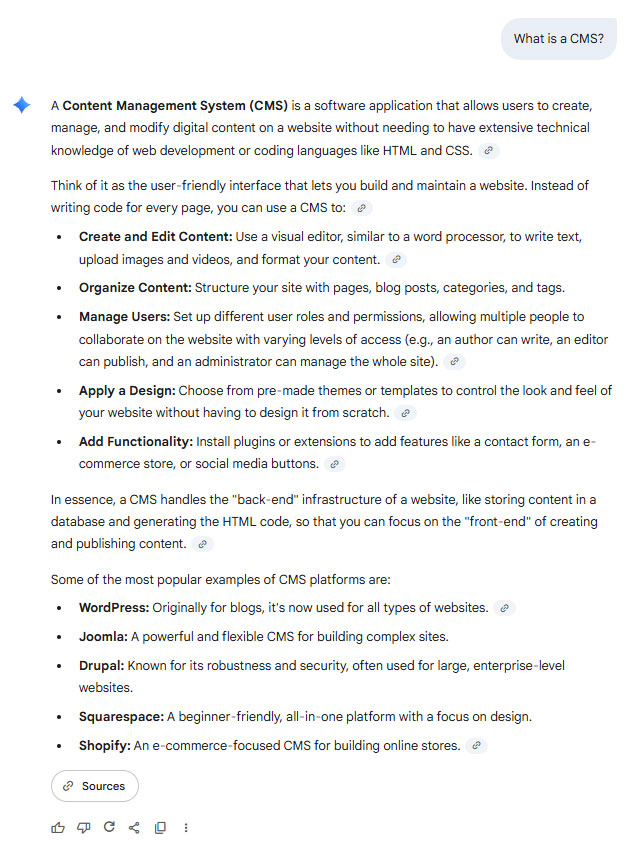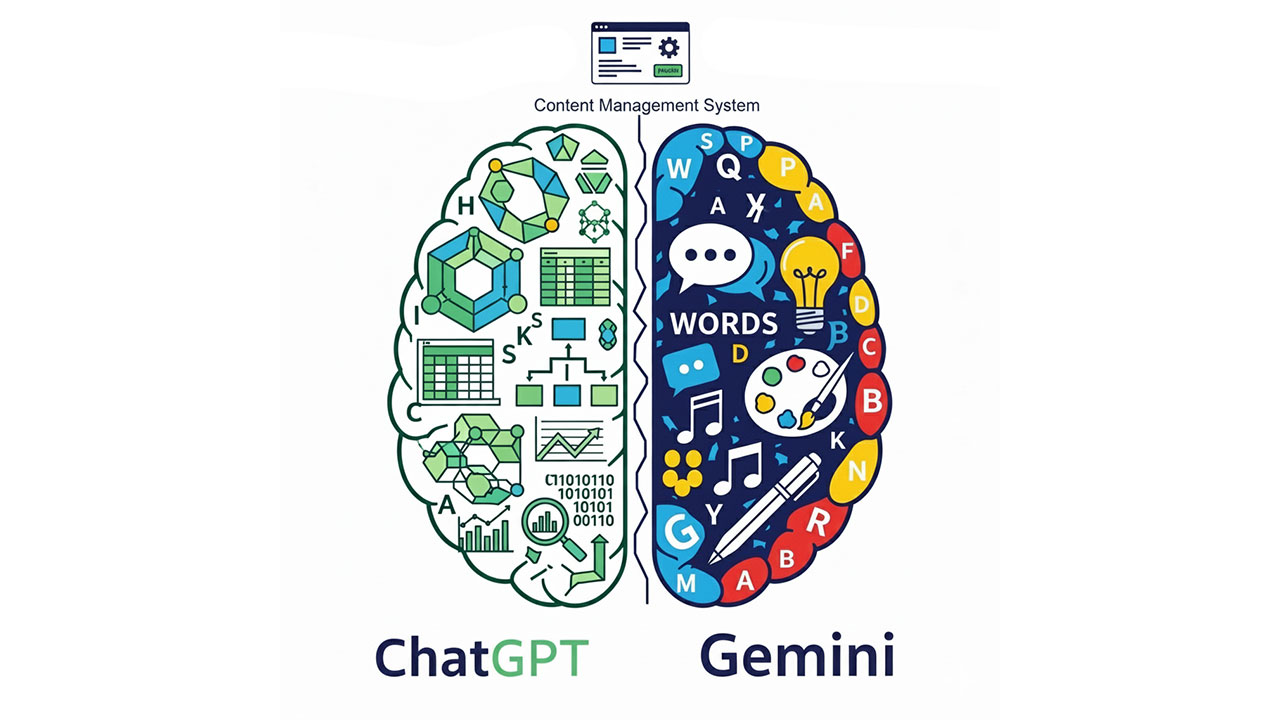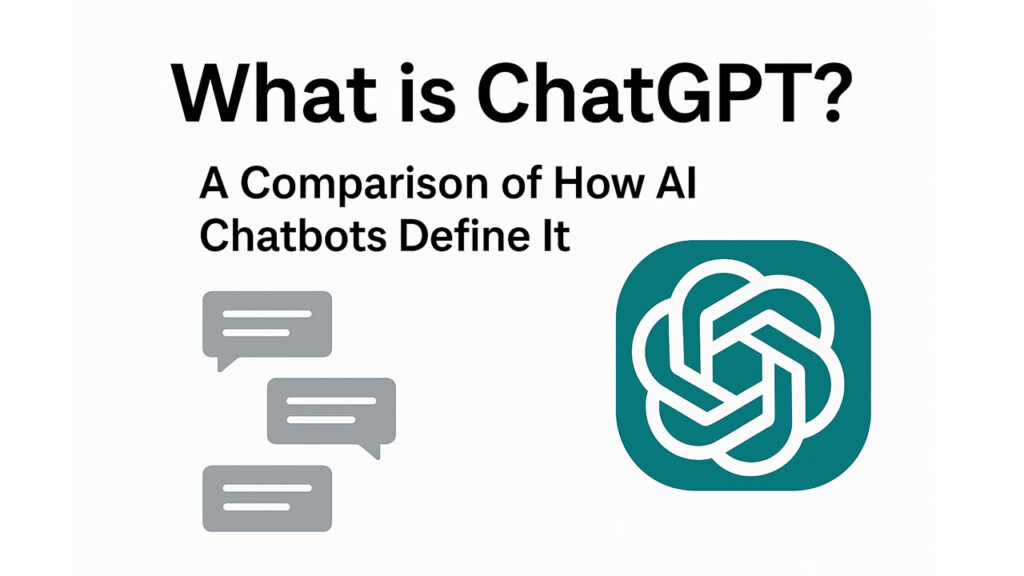A Content Management System (CMS) is an incredible piece of software that allows you to build a website and manage its content without getting tangled up in complex coding. Think of a CMS like a car’s dashboard. You don’t need to know how the engine works to drive it; you just use the buttons and the steering wheel. A CMS does the same thing for a website.
The most popular CMS platforms in the world, like WordPress, Shopify, and Wix, have helped millions of people launch their blogs, online stores, and all kinds of websites with ease.
Now that you understand the answer to this question, I will ask this question to two popular AI chatbots, ChatGPT and Gemini, to see how each answers the question “What is a CMS?” and compare their answers.
CMS from the Perspective of ChatGPT and Gemini
ChatGPT’s Answer

When I asked ChatGPT what a CMS is, I got a very organized and detailed answer. The model started with a short, straightforward definition and immediately went into the key features of a CMS. It gave each feature a bullet point and listed features like content editing, user management, and plugins. It ended with a short sentence that summarized the main concept in a simple way so that if you’re in a hurry, you can just read that one sentence.
Gemini’s Answer

Gemini’s answer to the question “What is a CMS?” starts with a straightforward and precise definition. The chatbot then goes on to explain the five main functions of a CMS, including creating and editing content, organizing it, managing users, applying templates, and adding new features. Its answer also simplifies the concept by using popular examples like WordPress and Shopify, and provides a short, practical explanation for each. Finally, it helps the reader gain a deeper understanding of the topic by emphasizing that a CMS manages the technical side of a website.
My Take on the Answers
Okay, now that I’ve seen both of the main answers, it’s time to get to the fun part: comparing them. When I put the two responses side-by-side, I noticed that both did a great job, but with completely different styles.
The thing that really impressed me about ChatGPT’s answer was its organized and concise structure. With its use of subheadings and a short summary, it’s perfect for someone in a hurry. The phrase “in short” at the end shows that ChatGPT knows how to simplify a topic. Also, the question it asked at the end gave the impression of a smart assistant ready to continue helping.
On the other hand, Gemini’s answer had a friendly and conversational tone. By using analogies like “Think of it as…” and smooth sentences, it tried to explain the topic in a more in-depth and understandable way. Additionally, in the examples section, it provided a short and practical description for each platform, which helps the reader understand the topic better. The only criticism I can offer is that its introduction was a bit long and might be tedious for someone who just wanted a quick definition.
So, Which One Is Better?
In this comparison, both AI models performed excellently, but each had a different strength. If you’re looking for a quick, structured answer focused on key features, ChatGPT is the better choice. But if you want a more complete, conversational explanation with greater technical detail, Gemini showed a stronger performance.
Quick Comparison Table
| Criterion | ChatGPT | Gemini |
|---|---|---|
| Structure & Readability | Excellent | Average |
| Completeness | Average | Excellent |
| Tone | Dry & Formal | Friendly & Conversational |
| Accuracy | Very High | Very High |
| Examples | Just a List | With Descriptions |


